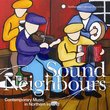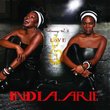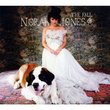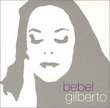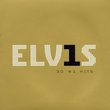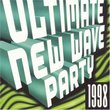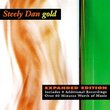| All Artists: Various Artists Title: Let Freedom Sing! Music of the Civil Rights Movement Members Wishing: 2 Total Copies: 0 Label: Time Life Entertainment Original Release Date: 1/1/2009 Re-Release Date: 1/27/2009 Album Type: Box set Genres: Blues, Folk, Pop, R&B, Gospel Styles: Traditional Blues, Acoustic Blues, Traditional Folk, Funk, Soul Number of Discs: 3 SwapaCD Credits: 3 UPC: 610583199529 |
Search - Various Artists :: Let Freedom Sing! Music of the Civil Rights Movement
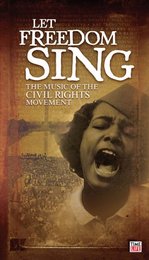 | Various Artists Let Freedom Sing! Music of the Civil Rights Movement Genres: Blues, Folk, Pop, R&B, Gospel
Three years in the making, this historical box set traces a 70 year journey with songs that reflect the feelings of those at the heart of the movement as well as those just trying to make sense of a troubled period in Amer... more » |
Larger Image |
CD DetailsSynopsis
Product Description Three years in the making, this historical box set traces a 70 year journey with songs that reflect the feelings of those at the heart of the movement as well as those just trying to make sense of a troubled period in American history. Similarly Requested CDs
|
CD ReviewsPerfectly timed musical anthology of the civil rights moveme hyperbolium | Earth, USA | 01/27/2009 (5 out of 5 stars) "Two years ago, just when then-Senator Barack Obama was announcing his run for the highest public office in the U.S., the producers at Time Life began work on this stupendous 3-disc, fifty-eight track collection. Scheduled in celebration of February's Black History Month (and in conjunction with a PBS/TV-One documentary), the set gains an indelible exclamation point from the inauguration of President Obama as the 44th chief executive of the United States of America. Throughout these fifty-eight tracks one can hear spirit, belief, faith, fear, sadness, hope and empowerment that were an inspirational source from which participants in the civil rights movement drew strength and a narrative soundtrack of historical events. The fluidity with which music intertwines daily life makes it more of a people's art than other performance media, self-sung as field hollers and church spirituals, passed as folk songs by troubadours, and saturating the ether of popular consciousness through records, radio, television and movies. Music is an accessible medium for documenting one's times, creatable with only a human voice as an instrument. Like speech, music can both record and instigate, but unlike speech, musical melodies readily anchor themselves in one's memory, forever associated with a time or place or person or event. That duality allows this set to play both as a public chronology of historic events and, for those old enough to have been there, a personal history of one's emotional response. The set opens a few years before America's entry into World War II with the a cappella spiritual "Go Down Moses," the dire reportage of "Strange Fruit" and the protest of "Uncle Sam Says." The ironies of post-war America continued to be questioned in "No Restricted Signs" and "Black, Brown and White," but as the `40s turned into the `50s, the tone became more direct, and at times angry. Historic court decisions and watershed protests intertwined with horrific killings, and this was reflected in the documentary tunes "The Death of Emmett Till, Parts 1 & 2" and "The Alabama Bus," and the questing lyrics of The Weavers' "The Hammer Song" and Big Bill Broonzy's "When Do I Get to Be Called a Man?" The set list follows a rough chronology of recording dates, but the thematic flow paints the more circuitous route of gains and setbacks, hopes and disappointments, triumphs and retrenchments that highlighted and pockmarked the movement's progress. The turbulence of 1965, the year of Malcolm X's assassination, provides a particularly keen microcosm of the conflicts, segueing the righteous protest of J.B. Lenoir's "Alabama Blues" with The Dixie Hummingbird's temperate ode "Our Freedom Song," and matching the cutting irony of Oscar Brown, Jr.'s "Forty Acres and a Mule" with The Impressions' compassionate call "People Get Ready." The last half of the sixties offered up beachheads in Aretha Franklin's "Respect," James Brown's "Say It Loud - I'm Black and I'm Proud," Sly & The Family Stone's "Stand!," and Lee Dorsey's pre-Pointers Sisters original "Yes We Can, Part 1." At the same time, assassinations and riots yielded John Lee Hooker's "The Motor City is Burning" and George Perkins & The Silver Stars' funereal "Cryin' in the Streets, Part 1." At the turn from the 60s into the 70s the movement seemed unstoppable, inciting Motown to veer into social commentary with The Temptations' "Message From a Black Man," provoking the Chi-Lites to editorialize with "(For God's Sake) Give More Power to the People," and launching Curtis Mayfield's solo career with deep thinking, adventurous productions like "We the People." Mayfield would be joined by Marvin Gaye with the release of What's Going On, and the catalog of injustice and angst "Inner City Blues (Make Me Wanna Holler)." The momentum continued in the `70s, but not without opposition, anger and dissent. Gil Scott-Heron provides a stream-of-consciousness news report from the frontlines with "The Revolution Will Not Be Televised," the Undisputed Truth's "Smiling Faces Sometimes" displays caution bordering on paranoia, and Aaron Nevill's "Hercules" is both paranoid and pessimistic. The embers of empowerment still burned, as heard in Bob Marley's "Get Up, Stand Up," which pairs nicely with the collection's earlier reggae tune, a cover of Nina Simone's "Young Gifted and Black." The set jump-cuts from the soul sounds of the O'Jays' "Give the People What They Want" to the hip-hop works of the Jungle Brothers' "Black is Black," Chuck D's "The Pride" and Sounds of Blackness' "Unity." Disc three includes new works by old masters Solomon Burke and Mavis Staples, but omits key figures of the `80s and `90s such as Public Enemy, KRS-One, and Mos Def. The set closes with the gospel spiritual "Free at Last," answering the call of disc one's opener. These events, stories and lessons resonate against an evolving palette of musical forms - doo-wop, jazz, gospel, blues, soul, rap - pioneered by African Americans in parallel with the civil rights movement. The pairings of stories and sounds tell an indelible story of faith, belief, empowerment and spirit. The producers have mixed little-known gems with the movement's hits, providing much deserved exposure to the former and much welcomed context to the latter. Production quality is top-notch, with sharp remastering, an introduction by Chuck D, and Grammy-worthy liner notes by Colin Escott that interweave song details and historical moments. Disc one is mono, except tracks 11, 13-18; disc two is stereo, except tracks 1, 3, 5, 7, 8, 11, 12, 14, 21; disc three is stereo. This is a fantastic music collection that doubles as the soundtrack to a history lesson. [©2009 hyperbolium dot com]" Lest we forget Mahir Ali | Sydney, NSW Australia | 03/10/2009 (5 out of 5 stars) "Pete Seeger often quotes Dr Martin Luther King Jr as saying that the civil rights movement was sustained by its song. Recordings such as these help to explain why: the best of them remain highly moving decades after the context in which they were born. Any three-disc overview of a theme that stretches across six decades is bound to be open to debate about what else could have been included and how many of the tracks could have been substituted with others, but it would be very hard to deny that this is overall a brilliant collection, extending across every genre from gospel and folk to reggae, soul and hip-hop, and accompanied by excellent liner notes. Many of the selections will be familiar to folks acquainted with this crucial aspect of American history, but the CDs are also peppered with rarities - such as "We Are Americans Too": a fairly mild remonstration compared with most of the other songs, but intriguing because it was recorded by an ostensibly apolitical crooner, Nat King Cole. What's more, Capitol refused to release it in 1956. I have a few quibbles - I would have preferred Sam Cooke's original version of A Change Is Gonna Come rather than Otis Redding's (undoubtedly rather good) cover; at the same time, it might have made sense to pick something slightly less familiar than Blowing In The Wind from Bob Dylan's prodigious early '60s output (or perhaps even a song such as George Jackson or Hurricane). None of that seriously compromises the musical, political or historical value of this treasure chest. I do, however, have a slightly more serious complaint: the failure to include anything by Paul Robeson, who possessed one of greatest voices of the 20th century, and used it to great effect." A real treasure, esp. for teachers Mrs H. | Germany | 12/11/2009 (5 out of 5 stars) "This CD-box is really worth its every penny. It takes you from the early days of the 20th Century through the troubled times of the Fifties and Sixties right up to the millenium, following the history of the Civil Rights Movement. The booklet offers a few interesting bits about the songs' history or impact.
Together with the documentary these CDs are the soundtrack of (and more!), "Let freedom sing" is an invaluable treasure, especially if you are a teacher and always on the look-out for good audio-material that really has got a message! It's only a pity that lyrics weren't included. But apart from that ... simply great!" |

 Track Listings (21) - Disc #1
Track Listings (21) - Disc #1
